The Climate Policy Observatory
In October 2021, the Government of the Grand Duchy of Luxembourg appointed the first members of the Climate Policy Observatory (CPO, OPC in French), created in accordance with Article 7 of the Luxembourg Climate Law.
The Observatory may issue opinions on its own initiative.
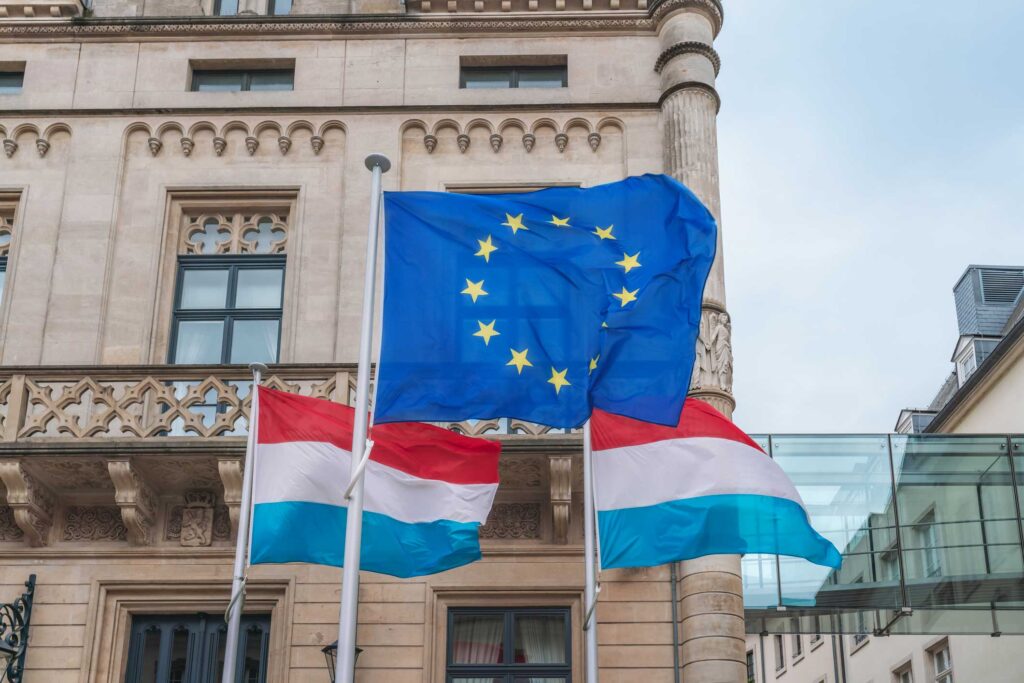
The mission of the OPC is to give opinions on projects, actions or measures that may have an impact on climate policy, to scientifically evaluate the measures carried out or envisaged in the field of climate policy and to analyse their effectiveness, as well as to propose new measures, to draw up an annual report for the government on the implementation of climate policy, and to propose research and studies in the relevant fields.
The OPC is a scientific council currently composed of seven members chosen among people with expertise in a field directly related to the Observatory’s mandate. Other selection criteria include complementary expertise in relevant knowledge areas and gender diversity. Current members’ areas of expertise range from climate modelling to climate economics and finance, economic geography and political science, multi-criteria analysis and life cycle assessment, biochemistry and systems science. Four members are based in Luxembourg and three members are based abroad. For more details on the experts, see Annex I. Members are appointed for a 5-year term in addition to their main job elsewhere and have an annual budget from the state budget7.
A Secretariat supports the mission of the OPC with two other highly qualified experts in greenhouse gas (GHG) projections, climate policy and environmental regulation. The Ministry of Environment hosts the Secretariat. The OPC Board consists of the President, Vice-President and Secretariat.

Mission Statement – OPC Members’ Understanding of their Role
The OPC strives to make a significant contribution to informing climate change policy and practice in a science-based and impactful way. Identifying the leverage points for achieving the broadest and fastest possible change is a priority shared by all its members, given the urgency of the situation. Based on the open legal mandate and the diversity of expertise and experience of its members, the OPC believes it has several unique strengths that will enable it to add value in areas that are particularly difficult to address from the position of a single department or organization. The OPC is particularly well positioned to respond to the Intergovernmental Panel on Climate Change (IPCC) assessment that “climate governance is most effective when it interacts with multiple policy areas, helps to build synergies and minimize trade-offs,” and connects different actors across sectors and levels of governance (national, municipal, individual actor level). In addition, the IPCC emphasizes that effective governance will rely on the empowerment of diverse actors to engage in profound changes in dominant ways of thinking and acting.
Our 3 principles
Discover our members
-

President
Climate change is already impacting life in Luxembourg – and will continue to do so in the years ahead. My ambition for the OPC is to help make the complex issues around climate and sustainable finance more understandable and accessible. By sharing clear, science-based information, I hope to empower action. I also see real opportunities in addressing the root causes of climate change – opportunities for Luxembourg’s environment, economy and society to move toward a more sustainable future.
Sabine Dörry is an economic and financial geographer and a Senior Research Scientist at the Luxembourg Institute of Socio-Economic Research (LISER). She is also a founding and board member of FINGEO, the Global Network on Financial Geography. Her academic journey has taken her to research positions and visits at leading institutions in Frankfurt, Oxford, Amsterdam and Singapore. Sabine’s current work explores how the financial industry is organised within major financial centres and how it shapes societies and economies. She is particularly interested in rethinking how we analyse global finance, focusing on how shifts toward sustainable finance and increasing technologisation are transforming financial systems, institutions and regional economies.
-
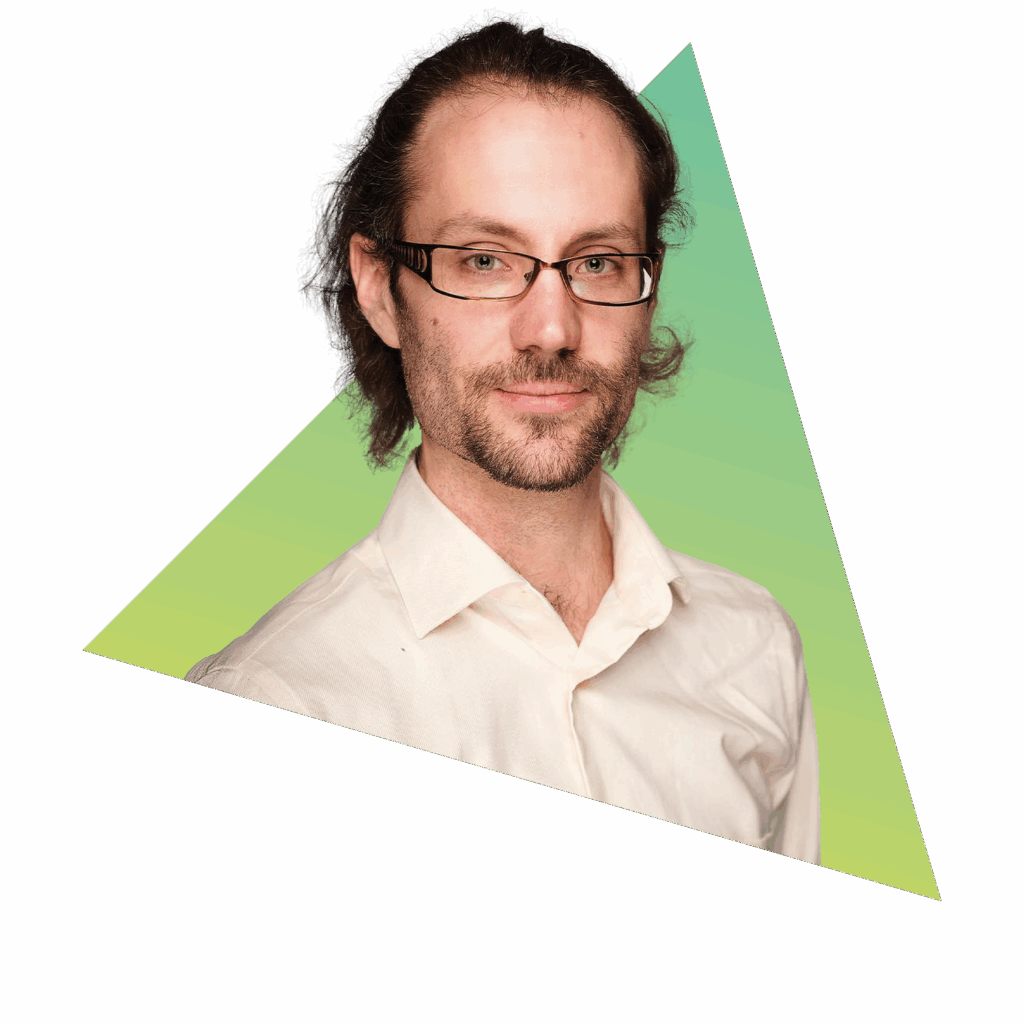
Vice President
The longer I study the complexities of human behavior and societies, the more I become convinced that few policies would be as transformative as putting a price on carbon: it would, almost overnight, redirect the efforts of countless people away from actively undermining our well-being towards innovative ways for living more prosperous lives. Even more transformative would be the fact of implementing any such policy, of consciously choosing as individuals and nations to take ownership of our future, rather than letting it happen. I hope that Luxembourg can become one seed for this transformation.
Marc Kaufmann is a behavioral economist whose research focuses on the role of motivated beliefs and the potential and limits of social responsibility in addressing climate change. He joined Central European University after finishing his PhD at Harvard University. He is currently an Associate Professor in Economics and the acting Director of the program in Philosophy, Politics, and Economics.
-
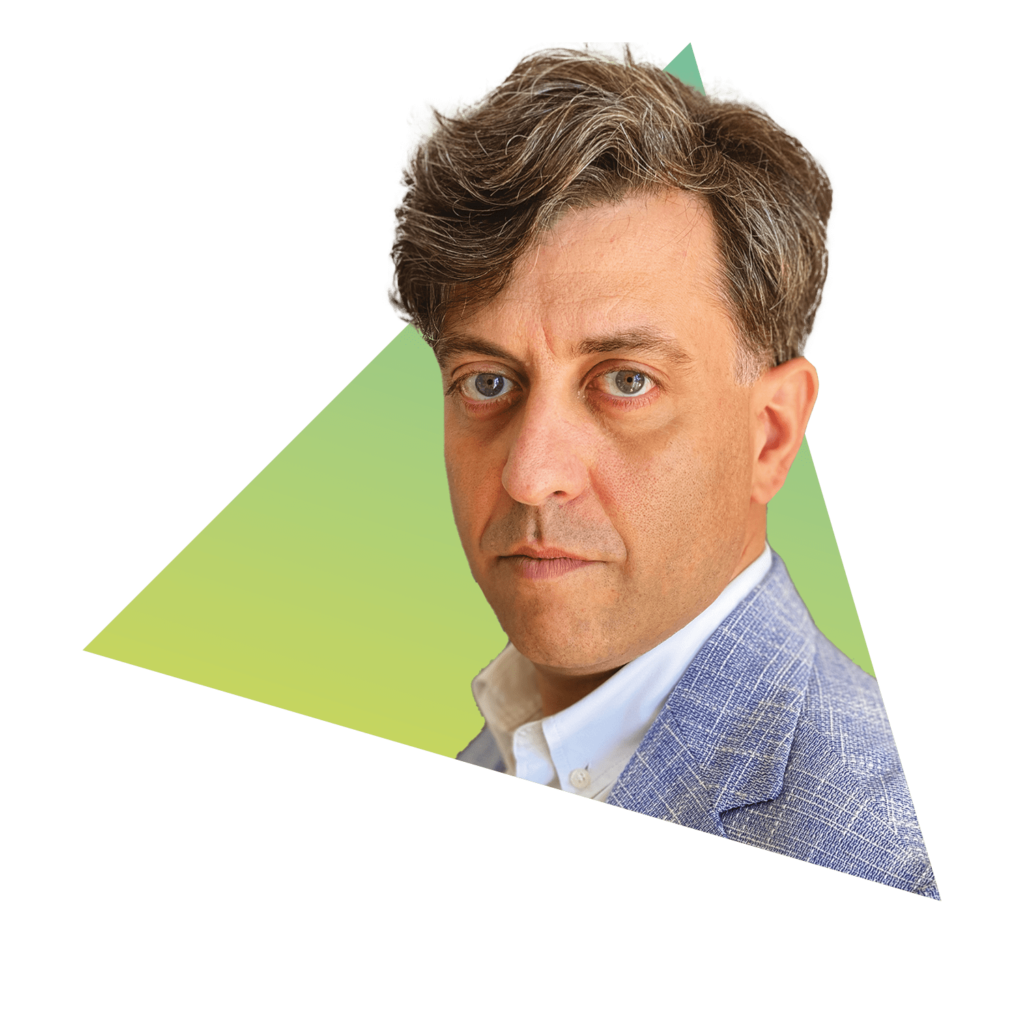
In joining the OPC, I am motivated to share my experience in quantitative assessment of the environmental impacts generated by human activities and technologies, to contribute to the evaluation of climate policies and the definition of improvement recommendations. In particular I intend to contribute to the understanding of the larger implications of climate policies on production and consumption systems, leveraging a life cycle perspective, to identify hot-spots, trade-offs and unintended effects. Considering the possible side-effects of climate policies, e.g., on environmental impact categories other than climate change (e.g., biodiversity) as well as on social aspects is central in my contribution to the OPC. Recognizing ecological boundaries as non-negotiable constraints, my vision is to foster transformative perspectives enabling climate policies that focus on sufficiency rather than just efficiency. Inherently, these approaches broaden policy evaluation beyond narrow economic metrics, including wellbeing, inequality reduction, ecological regeneration and, in general terms, what constitutes a good life within planetary boundaries.
As head of research unit at the Luxembourg Institute of Science and Technology (LIST) and for over 25 years, my core research interest has been developing life cycle sustainability assessment methods orienting production and consumption systems towards eco-efficent, decarbonised and post-growth scenarios. As a recognized scholar in sustainability science, I have worked in a broad range of cross-disciplinary projects in an international setting, carrying out scientific assessments, providing scientific and policy advice in several areas: Biodiversity and Natural Systems (ecosystems services and biodiversity assessment and combination to life cycle assessment to evaluate economic activities); Agrifood systems (impacts on climate change and ecological degradation of crop production systems, including the indirect impacts from food-bioenergy competition); Economics (Beyond Growth metrics and on the impact of the economic system on climate, biodiversity and sustainability challenges); Just Transition (social assessments of value chains, in particular Social Life Cycle Assessment); Sustainability Transitions and Systems Innovation (defining and evaluating transition pathways at different scales (technologies, sectors, countries) and modelling different modes of production and consumption in particular electromobility and circularity) ; Industrial Systems (assessment of new technologies, products, services from construction, chemical, automotive, steel, process, agrifood, packaging, composites, energy, materials sectors); Sustainable Finance (life cycle assessment of equity funds and green bonds, member in personal capacity of the EU Sustainable Finance Platform).
-
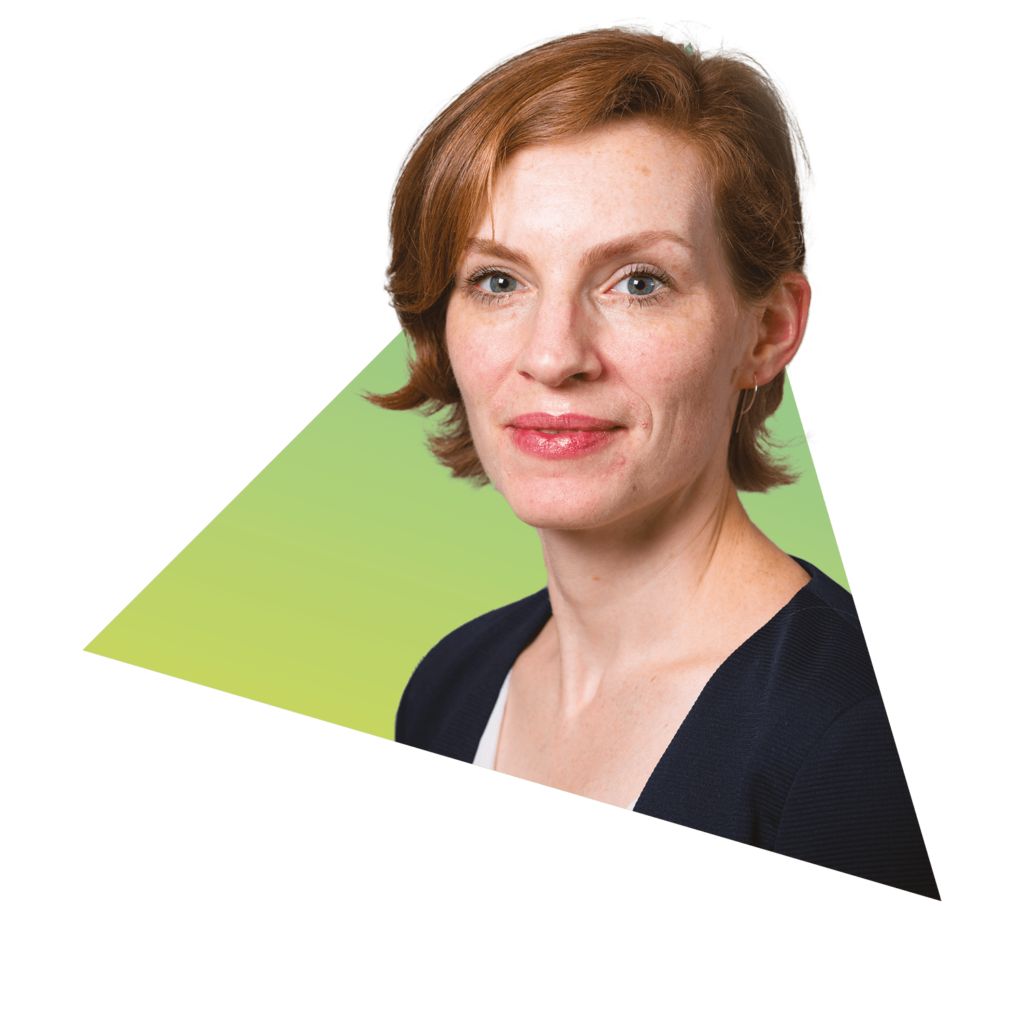
Responding effectively and fairly to climate change is a daunting task: Nothing less than the transformation of our underlying societal, cultural, and technological systems along with fair individual efforts will do. Everyone has a role to play.
Claire Dupont is political scientist, whose research focuses on the politics of sustainable transitions in Europe. She currently works as Research Professor of the governance of sustainability transformations at Ghent University, Belgium. Until December 2024, she served as the Chair of the Scientific Committee of the European Environment Agency. Originally from Ireland, Claire moved to Brussels, Belgium, in 2008, to pursue her PhD at the Vrije Universiteit Brussels, in which she assessed the integration of EU climate and energy policy frameworks. In 2024, Claire returned to Ireland as a visiting professor at Dublin City University’s Institute for Climate and Society.
Clearly, our knowledge systems also need to change to contribute to the necessary transformation, including by becoming more engaged and embedded in policy and societal processes. I am honoured to have the opportunity to play a role in these efforts through the work of the OPC.
-

Let’s work for healthy ecosystems, social systems, and lifestyles!
Ariane König is a Research Scientist at the University of Luxembourg, where she and her team are engaged in research projects to facilitate and learn from social processes with experts and stakeholders to address complex sustainability challenges. The research focus is on food and water and land-use systems as well as the tight interplay between the two. We seek to understand how developments and transformations within the spheres of society, technology, ecology, and the personal sphere are interdependent, and which might be prominent leverage points for deliberate transformations for a more sustainable society. König also built and coordinates an innovative study programme in ‘Sustainability and Social Innovation’ that is open to students and professionals. In addition to be a member of the Observatoire, König is also a member of the European Statistical Advisory Committee and has completed two terms as a member of the national Conseil Supérieur pour un Développement Durable. König obtained her Bachelor and Ph.D. at the University of Cambridge, Emmanuel College, and first worked on risk regulation for a leading multinational life science corporation. Thereafter she joined the universities of Harvard and Oxford, where she conducted research and taught post-graduate and executive training courses on governance of new technologies and risk, with a focus on sustainable agricultural food production. She has also worked as an independent scientific consultant for the OECD, the European Commission, and EU research consortia. She has over 50 publications, her most recent book ‘Sustainability Science: Key Issues’ was published by Routledge in 2018.
Sustainability requires transforming how we think of and relate to ourselves, other people, and the environment we live and work in. That’s not easy given our social system and infrastructures produce patterns of thought and behaviour that are hard to escape. The courses, study programme, and research projects I have built since 2010 serve to equip agents of change, such that we can better recognise leverage points for local and systemic change and evaluate and learn from these changes in a networked manner. This can involve citizen science, scenario work and other means. With my research team, and personally, I work to improve how we engage with and regenerate healthy water, soil, and biodiversity, in Luxembourg and beyond. In my organic garden I am proud to host countless lizards, diverse mice, a slowworm, and a rare smooth snake, who seem to seem to enjoy the many insects and packaging- and logistics-free vegetables and fruit there as much as my family and I do.
-

In 2050, I will be 65 years old and looking forward to my retirement. In the same year, at the latest, we must achieve net zero greenhouse gas emissions in order to limit global warming. It is my professional goal to be able to say at my retirement: The world has managed to stop global warming – and I have contributed to it!
Mirjam Kosch is an enthusiastic environmental scientist and completed her doctorate in economics at ETH Zurich on climate policy in the electricity sector. As part of her doctoral thesis, she empirically analysed the impact of renewable energy subsidies and carbon pricing. Later, she worked at the Potsdam-Institute for Climate Impact Research on the impact of fuel and carbon prices on electricity prices as well as on the expansion of the European emissions trading system and its interplay with different policy instruments. As a modern climate economist, she is convinced that carbon pricing should be a central instrument of climate policies but needs to be complemented by a broad policy mix.
Ever since my Bachelor studies I have been fascinated by the science-policy interface. Only when both sides actively engage in the dialogue between scientists and policy makers, can we really make a difference. Small countries where people know each other, like Luxembourg or my native country Switzerland, can lead the way as pioneers in this field. I am thus very happy to be part of the OPC and hope to make a contribution to mutual understanding between the two worlds.
-
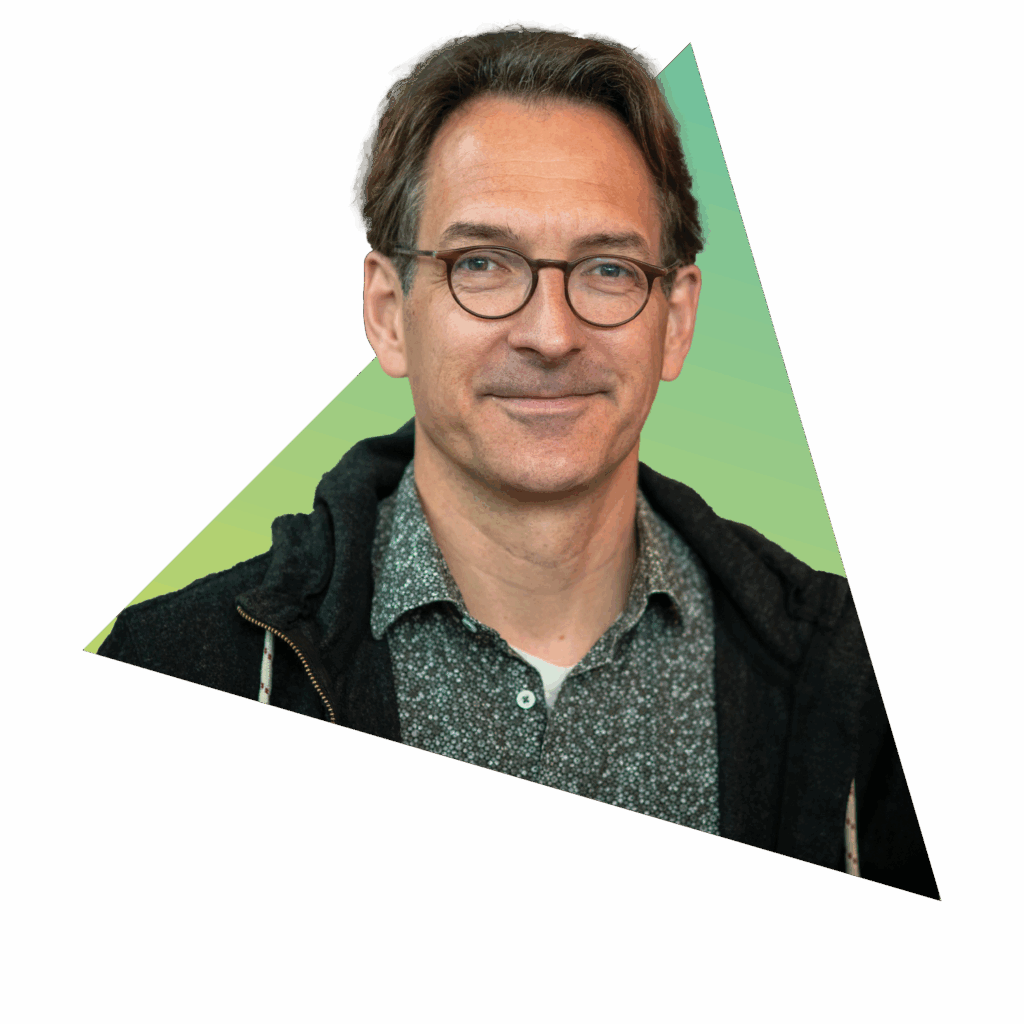
My kids were born 1997, 1999 and 2001. It is not that unlikely, that they will experience the world turning into the next century, 2100, a year, frequently the endpoint of so many climate-change scenario simulations. But even looking back in time, shows that the first two decades of our century brought so many climate-change driven disasters, that there is no time to loose. Preventing further intensification of the climate crises and bending the trajectory of biodiversity loss is of utmost importance. We don’t want to see a century ahead of us, as visualized by a movie from 2009 from ABC, ‘Earth 2100’, or as outlined in Kim Stanley Robison’s novel ‘The ministry for the future’.
Prof. Dr Ralf Seppelt was appointed Founding Director of the new Interdisciplinary Centre for Socio-Environmental System of the University Luxembourg in October 2024 and assumed his mandate in March 2025. Ralf Seppelt, born 1969 in Braunschweig, Germany, is an esteemed applied mathematician and internationally renowned expert in landscape ecology and renewable resource economics. Having published more than 150 scientific articles and serving as an expert for the Intergovernmental Platform for Biodiversity and Ecosystem Service (IPBES), he is renowned globally for his work in environmental science, biodiversity, and socio-ecological systems. Before joining the University of Luxembourg, he led the research unit “Ecosystems of the Future” at the Helmholtz Centre for Environmental Research – UFZ in Leipzig, Germany.
-
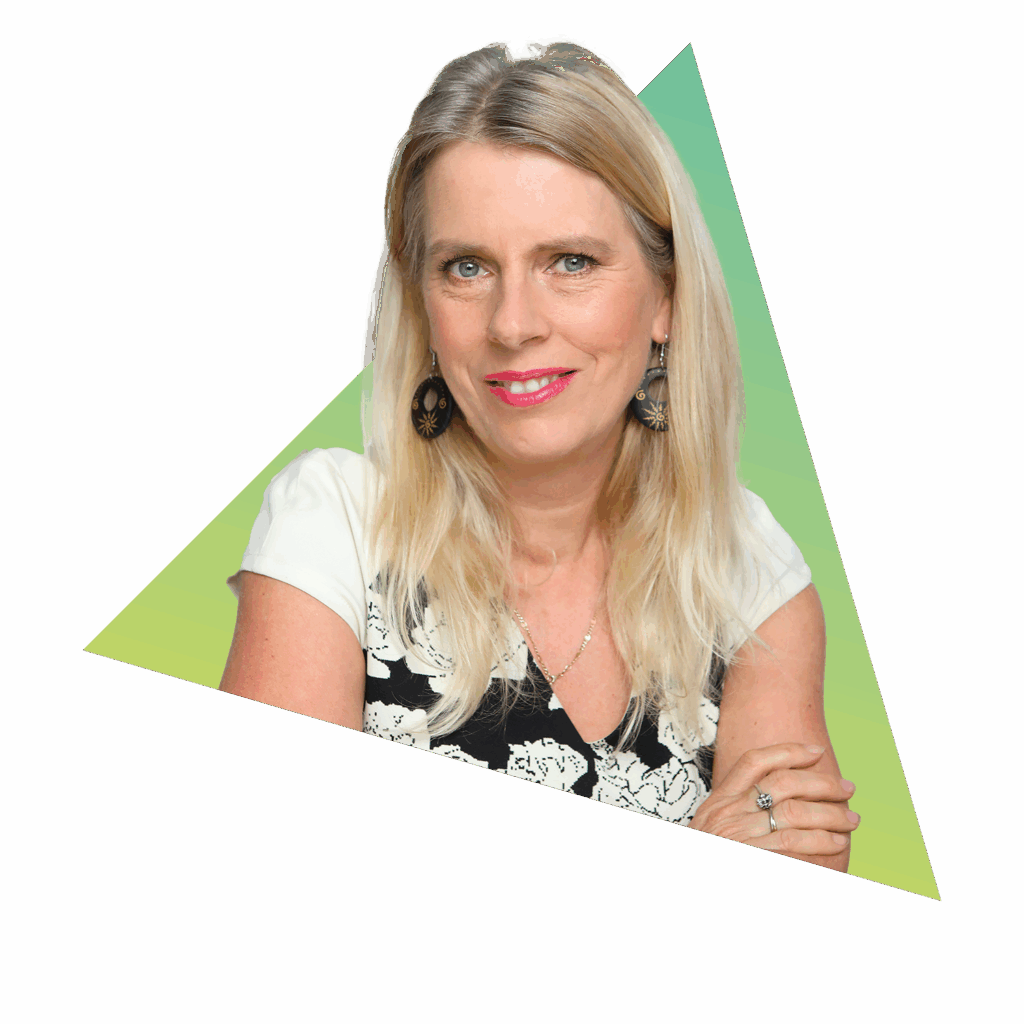
Diana Ürge-Vorsatz is a Professor at the Department of Environmental Sciences and Policy at Central European University (CEU) and a Vice Chair of the Intergovernmental Panel on Climate Change (IPCC). She previously served as Vice-Chair of IPCC Working Group III (Mitigation) during the Sixth Assessment cycle and as a Coordinating Lead Author for both the Fourth and Fifth Assessment Reports (AR4 and AR5).
She holds a PhD from the University of California, Berkeley, and has worked at Lawrence Berkeley National Laboratory. Throughout her career, she has led and contributed to major international initiatives for the European Commission, UNEP, the World Bank, and the OECD.
In addition to her academic leadership, she serves as an Associate Editor of Global Environmental Change Advances, an ICLEI Global Executive Committee Member (Urban Research and Innovation Portfolio), Vice President of the Hungarian Panel on Climate Change, and a member of the Scientific Advisory and Review Board (SARB) of IIASA. She is also a member of Academia Europaea (Section: Earth & Cosmic Sciences) and an expert of the United Nations Expert Group on Climate and Sustainable Development Goal (SDG) Synergies.
A recognised leader in climate science and mitigation, Prof. Ürge-Vorsatz has delivered over 300 keynote addresses globally and is a trusted advisor to major science-policy institutions, including the EU’s Joint Research Centre and the European Research Council. Her work and commentary have been featured in leading international media outlets, including BBC World News, The New York Times, Bloomberg, Forbes, and Euronews.
-

I turned 65 years old in 2022, and I want to pass on what I have learned throughout my career as a climate scientist, without embellishing reality or making it sound all doom and gloom. In the institutions and groups where I have the chance to be active, including the OPC, I will continue to advocate for respect for the environment and all forms of life, human rights, equality of women and men, truth, justice, science, listening, empathy, diversity, and inclusiveness. I would like to put my energy and time at the service of having the IPCC’s conclusions seriously taken into account by political decision-makers, economic actors, the education sector, and citizens. In doing so, I wish to remind people that there are many solutions to the various challenges facing humanity, and to support young people who want to build a better world.
Jean-Pascal van Ypersele is full professor of climatology and sustainable development sciences at UCLouvain (Université catholique de Louvain, Belgium) and member of the Académie royale de Belgique. A physicist and climate modeller who worked at NCAR (National Center for Atmospheric Research, USA), he has jointly published many papers with natural and social scientists on climate change and sustainable development at global and regional scales, and this for forty years. He has been extensively involved in the IPCC since 1995 and was IPCC Vice-Chair from 2008 to 2015. He co-authored the first quadrennial UN Global Sustainable Development Report (2019) and was a member of the EU Mission Board on Adaptation to Climate Change, including Societal Transformation (2019-2021). He has participated in most UN conferences on climate issues since 1979, including almost all COPs. He regularly briefs Heads of States and Governments and is occasionally consulted by Greta Thunberg.
